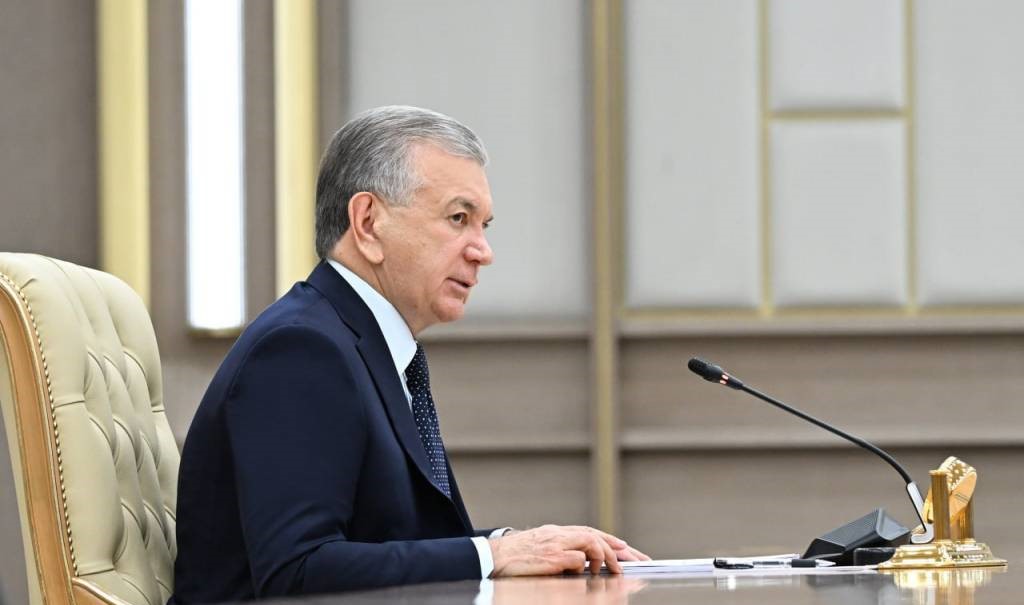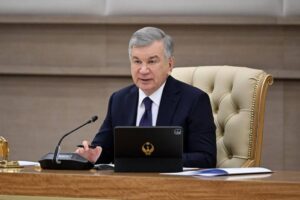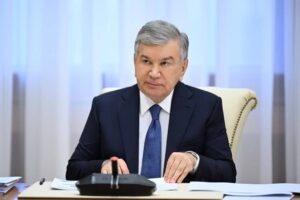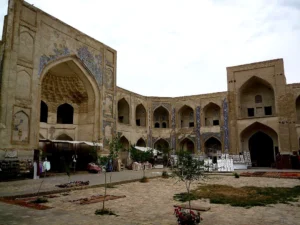President Mirziyoyev Discusses Uzbekistan’s “Green Space” Project and Future Priorities

Tashkent, The Gulf Observer: On October 21, President Shavkat Mirziyoyev chaired a high-level meeting to evaluate the progress of Uzbekistan’s national “Green Space” project and outline priority tasks for the future. The initiative, which aims to increase the country’s green coverage to 30% by 2030, focuses on planting 200 million trees and shrubs annually. Currently, Uzbekistan’s greenery covers 12% of the country’s land, a significant improvement in recent years.
This spring alone, 138 million seedlings were planted, and over 10,000 hectares of green belts have been created. Ministries and regional governments (hokimiyats) have successfully established 257 new gardens, while in the Aral Sea region, green cover now spans over 2 million hectares. Additionally, as part of the initiative, 2,000 hectares of land adjacent to roads, rivers, and canals have been leased to 10,000 citizens and entrepreneurs for landscaping. The government has allocated 49 billion UZS through the “My Garden” project for the creation of 215 new parks in local communities (mahallas).
However, the president highlighted the slow progress in some areas, noting issues such as the lack of irrigation systems for newly planted seedlings and insufficient replanting of trees that had been cut down.
Key Initiatives for the Upcoming Season and 2025
President Mirziyoyev laid out several strategic priorities. These include the cultivation of climate-adapted seedlings in partnership with the Academy of Sciences and other research institutions. This cooperation is expected to increase income from seed and seedling production while advancing scientific research. In 2025, four new gardens with drought-resistant and salt-tolerant plants will be established in Nukus, Arnasay, Karakul, and Mubarek districts. Additionally, on 250,000 hectares of desert land across seven regions, seeds of resilient species such as saxaul and kandym will be sown using drone technology.
Next spring, forestry enterprises will harvest 1,500 tons of seeds annually, and 2 million drought-resistant seedlings will be cultivated using advanced methods. On research institute lands in Samarkand, Tashkent, Khorezm, and the Fergana Valley, 10 million fruit tree seedlings will be grown annually.
The president emphasized the role of local communities (mahallas) in supporting this effort, encouraging the planting of 6 million ornamental trees along streets and 20 million trees overall across Uzbekistan. The Forestry Agency has been tasked with providing 30 million seedlings for this purpose, with further plans to green the grounds of educational institutions and hospitals.
In particular, 9 million seedlings will be planted along major international highways, and 40 million more will be planted in the fall. Ministries and regional authorities will lead these efforts, with significant contributions from the Ministry of Defense and law enforcement agencies.
Investment and Future Projects
The “Green Space” project will receive a 100 billion UZS allocation next year, and provisions have been made for three years of tree care, pest protection, and irrigation. The government will also test innovative irrigation techniques and plant trees on mountains and hills using the terrace method.
President Mirziyoyev also highlighted the growing impact of dust storms, exacerbated by illegal logging, overgrazing, and climate change. He called for renewed efforts to protect pastures, transferring 16 million hectares of pasture management to the Committee for Veterinary and Livestock Development, which will prepare a three-year program to restore degraded desert lands. A $50 million grant will be sought to fund these efforts.
Environmental Monitoring and Restoration
A collaboration between the Uzbekspace Agency and the Forestry Agency will establish a platform to monitor environmental conditions in desert areas. The agency will take on increased responsibility in fighting desertification, with “Green Road” organizations coming under its purview. Moreover, a 20-hectare experimental site will be created to test plants that restore degraded pastures.
President Mirziyoyev concluded the meeting by addressing the importance of promoting a healthy lifestyle, emphasizing increased physical activity and better nutrition for the population.
Responsible officials presented detailed reports on their progress and future plans during the meeting.


